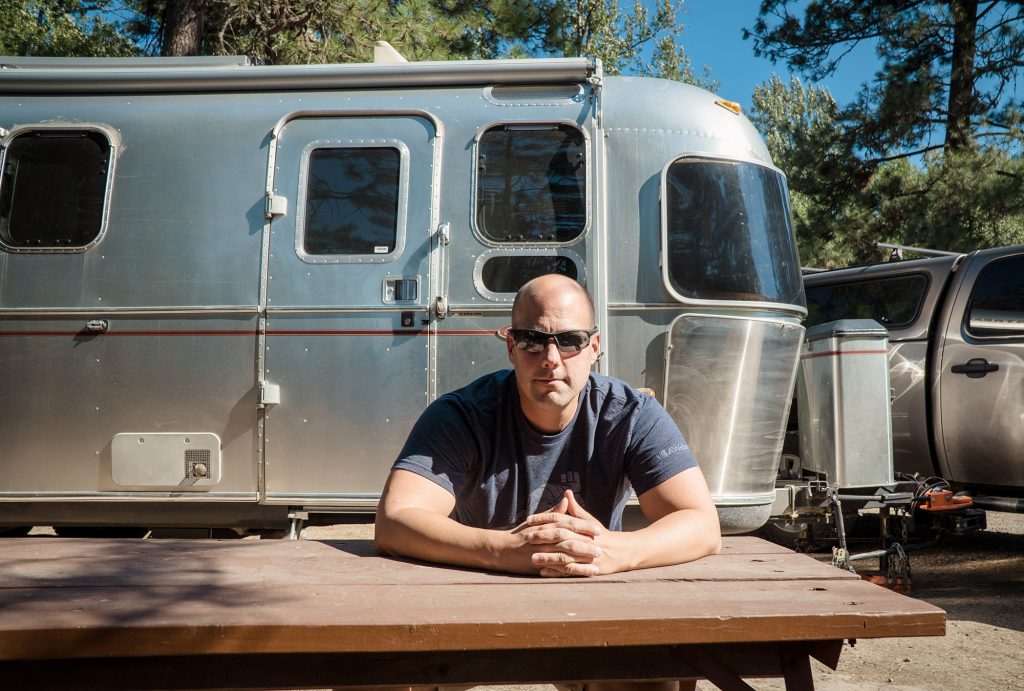Your complete guide to mastering your early retirement
If you're researching early retirement, this is a fantastic place to start. Check out our complete guide to retiring early!

It won't take readers of this blog long to recognize that early retirement IS all that it's cracked up to be - at least for me.
I'm waking up every damn morning with a smile on my face with the following 18-or-so hours ahead of me to do with as I please. The other 6 hours or so I'm sleeping. I've found I don't need a ton of sleep.
I have no bosses to impress, no time cards to punch and no stupid deadlines or endless meetings just for the sake of "team unity". In early retirement, you truly are the master of your domain.
But, it won't always be quite as easy for everyone, and it all starts with a very simple and unifying theme:
You need to do something in early retirement - that's your purpose

I can talk about purpose until I'm blue in the face because, well, it really is that important. Not that I relish the thought of losing enough oxygen for my face to get blue, but you get the idea.
Purpose is kinda important.
It's important because having the entire day ahead of you with nothing on the schedule comes with it a whole other set of potential problems. When the buck stops with you, shit gets real.
Do you want shit to get real? I mean, that real? Do you want the responsibility of owning your entire day without the structure that a full-time job often provides?
It's similar to "being your own boss" or working for yourself. It sounds good in theory, but you also need to own it. You need to be a special kind of person to manage yourself.
It's not as easy as it sounds.
To successfully manage your own time in early retirement, you need to know yourself...well. You need to know what makes you happy and what doesn't. You need to balance your fun with your "work" and know how much time to devote to each individual thing.
If you think that's easy, then you might be in for a world of hurt.
On the flip side, you can't over-schedule yourself after quitting your job
I have fallen terribly close to this point in early retirement. I'm so motivated to try new things and get involved that, quite frankly, I have a tough time saying no. I'm always looking for more.
And, that's not always a good thing.
For instance, I have this huge blog that I'm maintaining. My wife and I also run a growing YouTube channel at A Streamin' Life. What else?
- I started another blog about digital marketing
- I do consulting work at Rockstar Finance
- I write for bloggers/websites on specific projects
- I'm involved in several blog projects
- And, my wife and I travel the country for a living
All this stuff takes time, and I'd be lying if I said that time never gets away from me. Even after retiring early, I sometimes feel that there aren't enough hours in the day, and that's my own fault.
I just like being involved with things. Things that keep me focused and energized. Ultimately, a strongly believe that's good. It is.
But, the trick is to properly manage your time so you don't feel like you have a job again. After all, I retired early in large part to recapture my time, and the last thing that I want to do is sign myself up for enough projects that I feel like I don't have enough time to just...relax and enjoy life.
Managing your time is crucial.
You'll fail without time-management
Forget the money component of early retirement for a minute. Of course, we all know that we need money before quitting our jobs. That's the most obviously and clear-cut aspect of #FIRE.
What isn't so clear-cut is, well, us. You and me.
Life is an organic entity. We aren't using a bunch of repeatable mathematical equations to rule our time like we might use to come up with how much money we'll need before calling it quits.
If you can't manage your time, you won't be happy in early retirement. It really is that simple. You can't quit your work structure if you can't replicate that with a better structure.
It's a structure that you design and impose upon yourself. This is the hard part.
And, I cannot teach you how to do this, but I can give you the basic outline of what a solid structure looks like.
- What times of the day do you feel most productive?
- Are you an early morning person or a late riser?
- Are your hobbies easy enough to pursue on a daily basis?
- Do you have a one year, two years and five-year goals?
A direction is critical, and understanding how you work the best is how to set yourself up on the path to head that way.
For example, I know that I do my best work in the morning hours. Therefore, I focus on the most critical aspects of my life in the morning. Everything else takes second priority. The morning is my time to focus.
When I can properly focus, I can get my "work" done on my side projects. I feel productive and motivated to repeat that process the next day and I'm actively strutting in the direction that I need to go.
The more that you understand about yourself, the better equipped you'll be to customize your life in a way that makes sense. Taking the time management test from BrainManager can help you gain insights into your productivity patterns.
Stop worry about the damn risks
First, let me preface this discussion with a very simple statement: Anything can happen in early retirement. You might fall down a flight of stairs the day after you call it quits, break your leg and undergo a series of painful and expensive surgeries.
Or, you might get into a car accident. Or a train wreck. Or contract a disease. Or...*fill in the blank*. The point is that yes, things happen. Markets crash. People over-spend.
There’s no doubt that quitting your full-time source of income in your 30s, and expecting to live not 20, 30, or even 40 more years…try, 60 or 70, without a dedicated income for more than half of your life, is a risk.
But for most of us, it’s a calculated risk. But, here's an important question that we need to ask ourselves.
What about the risks of staying at our jobs? – especially stressful ones. As ABC reports: “A growing body of research stands testament to this fact: lack of sleep has been shown to tax the hearts of the stressed executive and the stressed day worker alike.
“Layoffs,” the report continues, “can take their psychic and physiologic toll in the executive suite and on the production line; the burden on those left behind, who work more overtime to shoulder a heavier workload, can be life-shortening; and living in fear of losing a job, or staying put in a hostile workplace, also boosts the risk of an earlier cardiac death.”
I hate the risk of not retiring early more than the opposite. To work the vast majority of our life and then retire during the portion of our life where we’re more likely to get sick is a dreadful thought. To develop cancer. Suffer from mobility-inhibiting aches and pains. It’s painful to even think about.
Consider this graph from Cancer.gov. The wide majority who develop cancer are above the age of 50.

The highest incidents of cancer occur between 65 and 74 which, coincidently, happens to coincide closely with the age that we can draw social security without penalty: 62.
Does anyone else see a problem with this?
Risks run in both directions, ladies and gentlemen. We're wise not to hone in on the risks OF early retirement and ignore the risks of NOT taking your life (and your time) into your own hands.
To me, it’s way more risky to retire during the period when we’re most likely to develop a health problem than it is much earlier in life.
At what point do we begin to consider the risks of NOT retiring early and weigh those against the risks of quitting the rat race early?
Risk is a two-way street, my friends.
Every once in a while, do something insane
I've written about this one before: Comfort zones crush our ability to improve our lives. They keep us wrapped up in a cocoon of mush, complacent and completely relaxed. Reflection and bettering our lives is often the furthest thing from our minds when we’re in these zones.
Instead of going to the gym to begin that new fitness program, we give ourselves an excuse to stay home. Rather than dropping by the neighborhood pot luck to meet the neighbors and network, we catch the latest episode of [insert popular TV sitcom here because I honestly have no idea].
It is natural to want comfort. And occasionally, there’s nothing wrong with a little time in our comfort zones. But spending too much time in this zone is detrimental to our progress. Get out of it.
Remember that time that we gave a speech about financial independence in front of hundreds of people? I do, because that was just a couple of months ago at the RV Entrepreneur Summit.
Okay, while I wouldn't consider that "insane", it definitely got us out of our comfort zones. We were nervous as hell before going up there, but once we got up on stage, everything fell right into place.

Confidence is a convenient virtue
I am, like, super duper confident. Confident to a fault.
I firmly believe that what we are doing is the absolute right thing, and we’ve made our decision. We are jumping in head first and not looking back. I quit a high paying and relatively low-stress job in the Information Technology industry for a life of freedom.
And I'm damn proud of what we’re doing.
Confidence is very different than arrogance. I don’t believe that I’m “always right”. I believe that I make the very best decisions that I can base on the information I have at the time. If I'm wrong, then I’m wrong. Big deal.
We fix it and move on.
Life sucks when we spend it second-guessing ourselves. So, I don't. I believe that things will work out. I know that we are flexible and will roll with the punches.
I’m not worried about health care (gasp!). I don’t care who our president is. I refuse to let external factors that I cannot control dictate my life. The only thing that I can control is me. My life. My reactions. My motivations.
Confidence is key to keeping a sound mind and determined future. The more confident you are, the better prepared you'll be to make early retirement work. Why?
Because early retirement, just like life, is a mind game. If you win the battle inside your head, you'll win the battle outside of it as well.
What does financial independence and early retirement actually mean to you?
For me, financial independence is simple: it means that you are not beholden to a job to provide for your livelihood.
Instead, your wealth – acquired through a high level of income or aggressive savings plan, supports your lifestyle. While you may still work, you don’t need to. You work because you enjoy it.
To my wife, financial independence is a choice. It refers to the ability to choose the life that we all desire and live it as the person that we all choose to be.
Whatever it means to you, make sure that you understand it. This is your guiding principle that'll help ensure you're on the straight and narrow.